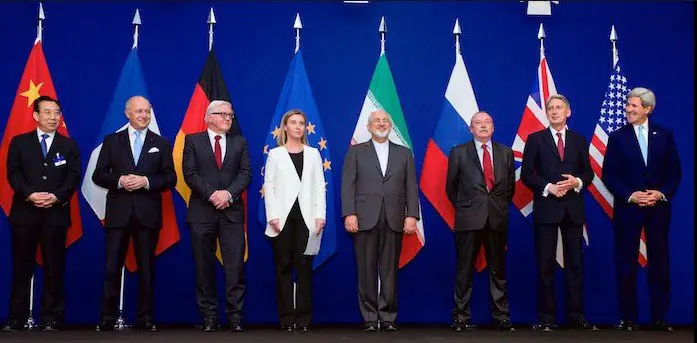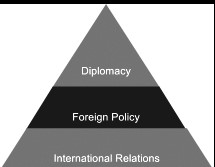Foreign policy and diplomacy are two pillars that uphold the intricate architecture of international relations. Each plays a crucial role in how a nation interacts with the rest of the world, shaping its global standing, security, and economic prospects. While closely related, they serve distinct functions within the broader context of a country’s engagement on the international stage.
Foreign policy is the strategy a country uses to protect its interests and achieve its goals on the global stage, whereas diplomacy is the practice of managing international relations through negotiation, dialogue, and communication. Essentially, foreign policy outlines what a nation seeks to accomplish abroad, and diplomacy is one of the key tools employed to achieve those objectives.
The distinction between foreign policy and diplomacy often blurs, yet understanding their differences is essential. Foreign policy sets the agenda and defines the objectives, ranging from national security to economic interests, while diplomacy works on the front lines, engaging with foreign entities to implement this agenda. This dynamic interaction contributes to peace negotiations, trade agreements, and international collaborations, underscoring the complexity and significance of each in shaping world affairs.

Foreign Policy Defined
Definition and Purpose
Foreign policy is the strategic approach a nation adopts to guide its interactions with other countries. Its primary purpose is to safeguard the nation’s interests, enhance its security, and promote economic prosperity. By defining a country’s stance on international issues, foreign policy sets the stage for diplomatic, economic, and military engagements worldwide.
Components and Framework
The components of foreign policy include:
- Strategic objectives: The goals a country aims to achieve on the international stage.
- Diplomatic relations: The establishment and maintenance of formal relationships with other nations.
- Economic policies: Decisions related to trade agreements, sanctions, and economic aid.
- Military strategies: The use of defense and military capabilities to support national interests abroad.
The framework for developing foreign policy typically involves:
- National security assessments: Evaluating threats and opportunities in the international arena.
- International law compliance: Ensuring actions are in line with global legal standards.
- Interagency coordination: Collaborating across different governmental departments.
Role in International Relations
In international relations, foreign policy is crucial for establishing a country’s position and influencing the global order. It determines how a nation interacts with allies and adversaries, negotiates treaties, and participates in international organizations.
Diplomacy Explained
Definition and Mechanisms
Diplomacy is the art and practice of conducting negotiations between representatives of states. It involves a range of mechanisms, such as diplomatic correspondence, official visits, and international conferences, to facilitate dialogue and resolve disputes.
Types of Diplomacy
There are several types of diplomacy, including:
- Bilateral diplomacy: Engagement between two countries.
- Multilateral diplomacy: Involves multiple nations, often within international organizations.
- Public diplomacy: Aims to influence foreign publics and governments through media and cultural exchanges.
Diplomacy’s Role in Foreign Policy
Diplomacy serves as the primary tool in executing foreign policy. It enables nations to pursue their international objectives without resorting to force, through negotiation, communication, and relationship building.
Key Distinctions
Policy vs. Practice
The distinction between foreign policy and diplomacy lies in their nature; the former is the strategy or plan, while the latter is the method of implementing that strategy.
Strategic Goals vs. Execution
Strategic goals are set within the realm of foreign policy, outlining what a country aims to achieve. Execution, carried out through diplomacy, involves the practical steps taken to reach those goals.
Long-term vs. Immediate
Foreign policy often encompasses long-term objectives, looking ahead to future security and prosperity. Diplomacy, on the other hand, deals with the immediate tasks of managing day-to-day international relations.
Formation and Implementation
Crafting Foreign Policy
Decision-making Processes
The decision-making in foreign policy involves:
- Analyzing international trends and threats.
- Consulting with experts and allies.
- Weighing strategic options.
Influencing Factors
Several factors influence foreign policy formation, including:
- Domestic politics: The interests and ideologies of different political groups.
- Economic conditions: Global market trends and economic partnerships.
- Security assessments: Military capabilities and defense alliances.
Examples from History
Historic examples illustrate how foreign policy decisions have shaped international relations:
- The Monroe Doctrine: Established the United States’ sphere of influence in the Western Hemisphere.
- The Marshall Plan: Aided European recovery post-World War II, strengthening alliances.
Conducting Diplomacy
Negotiation Techniques
Effective negotiation techniques in diplomacy include:
- Active listening: Understanding the counterpart’s perspective.
- Compromise: Finding mutually acceptable solutions.
- Confidence-building: Establishing trust through transparency.
Diplomatic Strategies
Strategies employed in diplomacy can vary, such as:
- Shuttle diplomacy: Mediating between parties in different locations.
- Coercive diplomacy: Using the threat of force to achieve objectives.
- Soft power: Influencing through cultural and economic means.
Case Studies
Case studies of successful diplomacy highlight its significance:
- The Cuban Missile Crisis negotiations: Averted a nuclear war through diplomatic channels.
- The Iran Nuclear Deal: Demonstrated the power of multilateral diplomacy in addressing complex security issues.
Challenges and Evolution
Adapting to Global Changes
Technological Advances
The landscape of foreign policy and diplomacy has been significantly reshaped by technological advances. The rise of digital communication platforms and social media has introduced new channels for diplomatic engagement and public diplomacy. However, this digital revolution also presents challenges, such as cybersecurity threats and the spread of misinformation. Nations must navigate these waters carefully, leveraging technology to enhance their diplomatic reach while safeguarding against potential vulnerabilities.
Shifts in Global Power
Shifts in global power dynamics, marked by the emergence of new economic and military powers, have introduced a complex array of challenges for traditional foreign policy and diplomacy frameworks. These shifts demand a reevaluation of old alliances and strategies, prompting countries to adapt their foreign policies to a more multipolar world. Navigating these changes requires a delicate balance of power, strategic foresight, and the ability to form new partnerships.
Overcoming Challenges
Diplomatic Tensions
Diplomatic tensions often arise from misunderstandings, conflicting interests, or direct confrontations. Resolving these tensions demands high-level negotiation skills, patience, and the willingness to engage in dialogue. Effective diplomacy under such circumstances involves a combination of soft power strategies, such as cultural exchanges and economic incentives, alongside more traditional diplomatic maneuvers to defuse conflicts and foster understanding.
Policy Conflicts
Policy conflicts occur when the foreign policies of different nations clash, leading to standoffs or even sanctions. Overcoming these conflicts requires a deep understanding of the opposing viewpoint, a readiness to find common ground, and the strategic use of international law and mediation by third parties. Successful resolution of policy conflicts not only averts potential crises but also opens up new avenues for cooperation.
Impact and Outcomes
On International Relations
Peace and Conflict
Foreign policy and diplomacy play pivotal roles in the maintenance of international peace and the prevention of conflict. Through diplomatic efforts, countries can resolve disputes peacefully, avoiding the cost of war and the strain on international relations. Examples include peace treaties, negotiation of ceasefires, and conflict resolution through international bodies like the United Nations. The strategic use of diplomacy as a tool for peacebuilding underscores its critical importance in sustaining global harmony.
Alliances and Partnerships
The formation of alliances and partnerships is a key outcome of effective foreign policy and diplomacy. These alliances, whether for defense, economic cooperation, or political solidarity, strengthen the international order and promote collective security. They enable countries to pool resources, share intelligence, and coordinate strategies to address common challenges. The NATO alliance and the European Union are prime examples of how diplomacy can lead to strong, cooperative international frameworks.
On National Interests
Economic Growth
Foreign policy and diplomacy are instrumental in promoting economic growth. By negotiating trade agreements, securing foreign investments, and fostering a favorable international business environment, countries can enhance their economic prosperity. Diplomatic efforts also play a critical role in navigating international economic institutions and disputes, ensuring that national interests are protected while promoting global economic stability and growth.
Security and Defense
At the core of foreign policy lies the protection of a nation’s security and defense. Diplomatic engagements allow for the negotiation of security pacts, arms control agreements, and mutual defense treaties that enhance national security. Diplomacy also plays a crucial role in intelligence sharing, counter-terrorism efforts, and non-proliferation initiatives. By building trust and cooperation among nations, diplomacy contributes significantly to the global security architecture.
Frequently Asked Questions
What is foreign policy?
Foreign policy refers to a government’s strategy in dealing with other nations, aiming to achieve its objectives and protect its national interests. It encompasses decisions on diplomacy, trade, and defense that are made to influence the international community.
How does diplomacy differ from foreign policy?
Diplomacy is the art and practice of conducting negotiations and maintaining relationships between countries. It serves as the main instrument of foreign policy, through which countries communicate and negotiate to achieve their international objectives.
Why is understanding the difference between foreign policy and diplomacy important?
Understanding the distinction helps in comprehending how nations navigate the complex web of international relations. It reveals the strategic planning behind a country’s global interactions and the tactical methods used to engage with other nations, highlighting the roles both play in maintaining international peace and security.
Can a country’s foreign policy exist without diplomacy?
While foreign policy sets a nation’s international agenda, diplomacy is crucial for its implementation. Without diplomacy, a country would struggle to effectively communicate and negotiate with others, making it challenging to achieve its foreign policy objectives.
Conclusion
The nuanced differences between foreign policy and diplomacy reveal the depth and complexity of international relations. Foreign policy provides the blueprint, articulating a nation’s goals and strategies on the global stage, while diplomacy acts as the hands and feet, working tirelessly to turn these visions into reality. Together, they form a dynamic interplay that shapes the course of international politics, peace, and economic prosperity.
Recognizing the distinct but interlinked roles of foreign policy and diplomacy offers valuable insights into the mechanisms of global governance. It underscores the importance of strategic planning and skilled negotiation in achieving national interests and fostering international cooperation. In the intricate dance of global relations, both foreign policy and diplomacy are essential for a nation’s security, growth, and standing in the world community.

